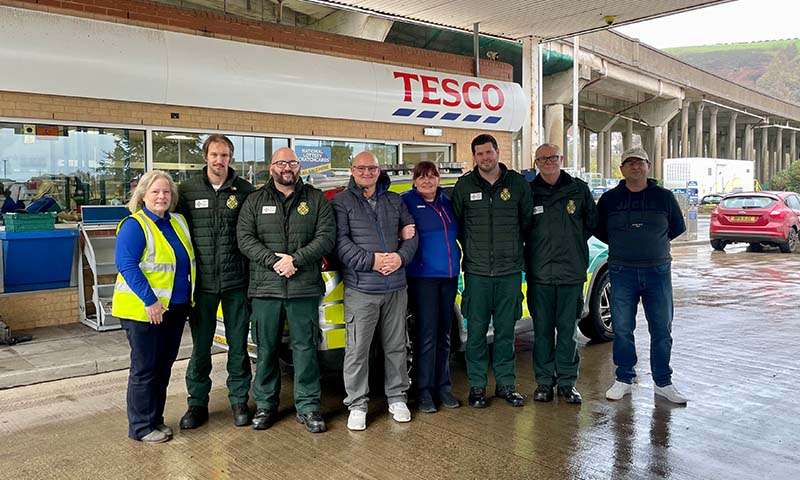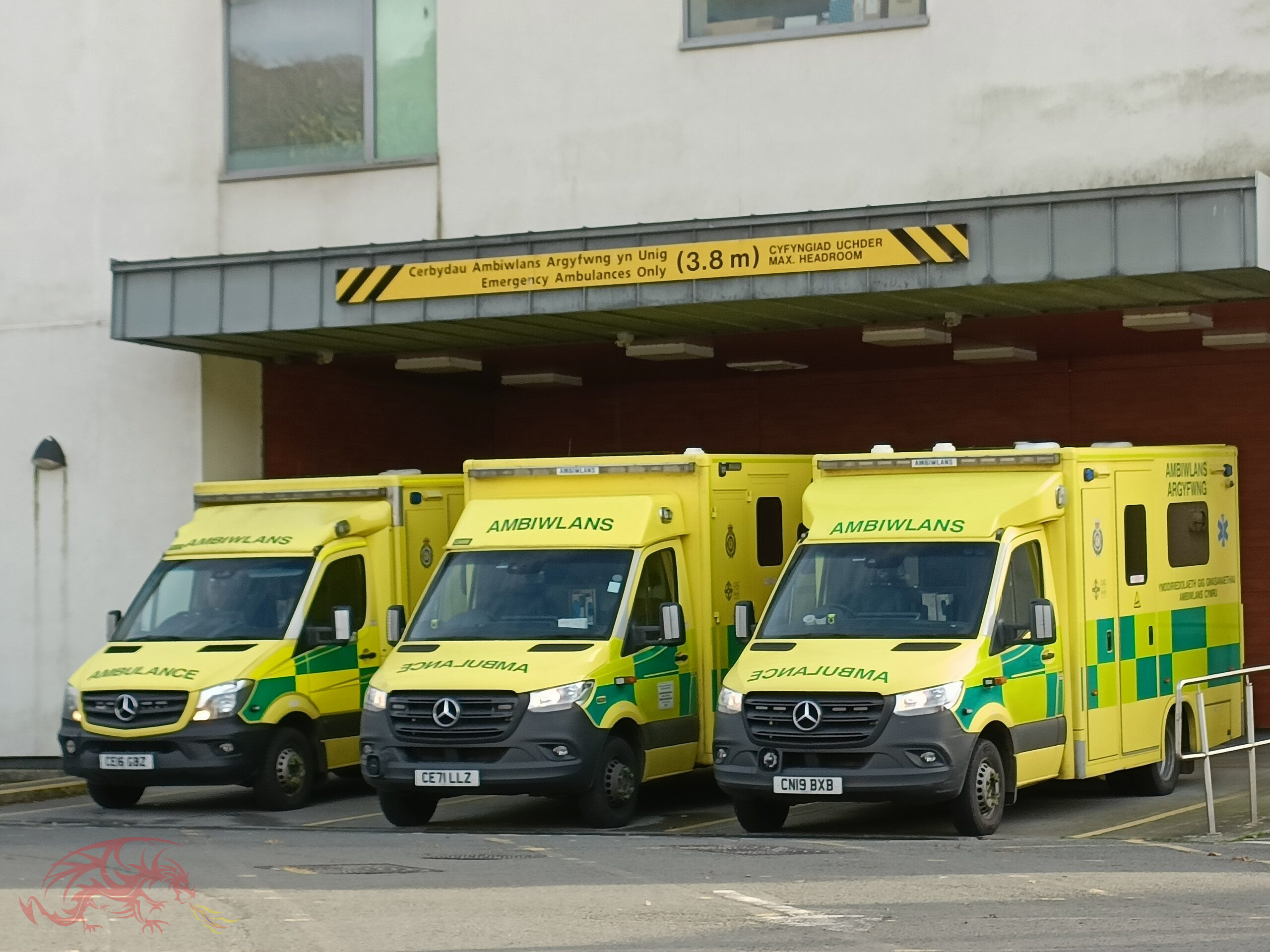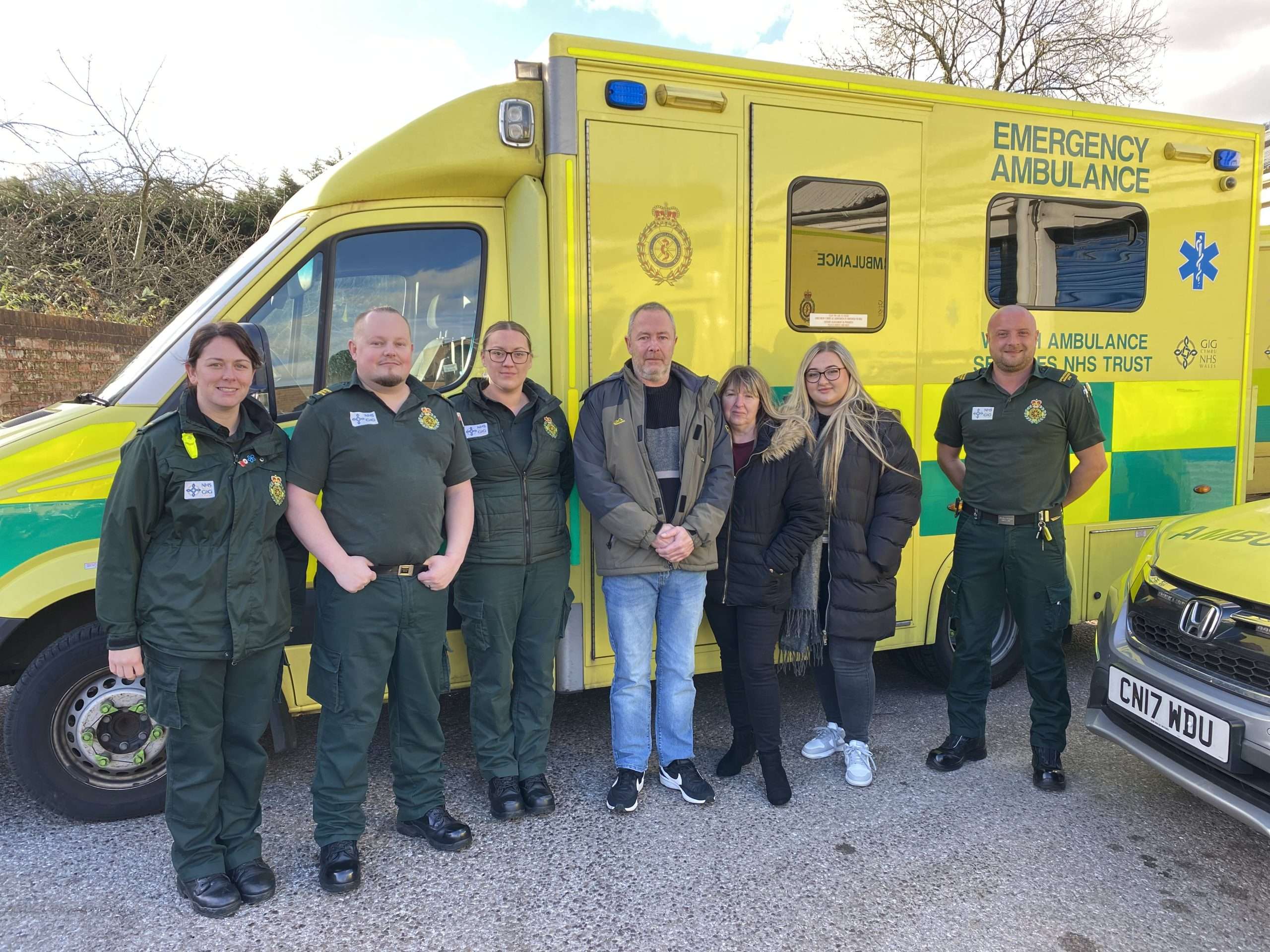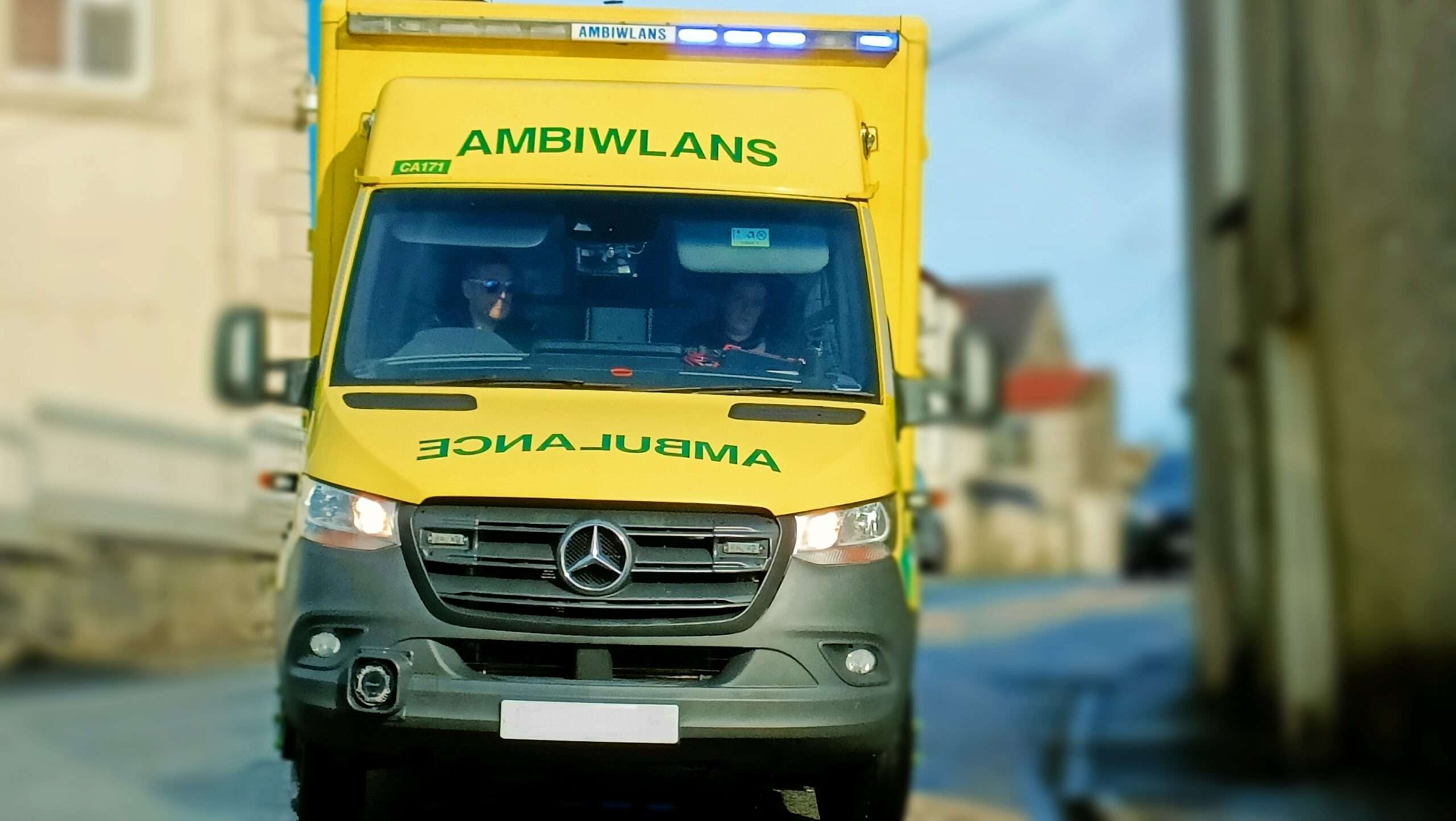A PETROL station attendant who had a cardiac arrest at work has thanked her husband, co-workers and the ambulance crew who saved her life.
Jayne Partridge, 55 (pictured centre right), had just started her shift at the Tesco filling station in Port Talbot when she began to feel unwell.
Within minutes, the mum-of-two was in full cardiac arrest.
Jayne’s colleagues dialled 999, gave chest compressions and delivered a series of shocks using a defibrillator.
A Welsh Ambulance Service crew stabilised Jayne and took her to Morriston Hospital, where she spent four weeks in recovery, 12 days of which were in intensive care.
Jayne, who has worked for Tesco for 25 years, said: “I had the best treatment from start to finish.
“I’m glad it happened at work because if I’d have been home alone, it could have been a very different story.
“I just want to thank the crew for everything they did, they were amazing.”
It was just after 6.30am when Jayne started work at the Prior Street filling station.
She said: “I’d not long got to work and said to my colleague: ‘I don’t feel well.’
“My arms felt very heavy and were hurting, so she sat me down on a stool.
“The next minute, I’d gone.
“The funny thing is I had no history of heart problems, apart from the odd palpitations over the years.
“I was really quite fit – in fact, the Saturday before it happened, I’d walked 11 miles with the dogs.”
When someone has a cardiac arrest, they collapse and become unresponsive.
They either stop breathing entirely or they may take gasping or infrequent breaths for a few minutes, which can be mistaken for snoring.
Jayne’s colleague Bev Cooksley came to her aid initially, while security officer Christopher Piles called 999 and customer service assistant Beth Wilson went to retrieve a nearby defibrillator.
Christopher, who is also a first aider, said: “I remember Jayne saying she felt a bit under the weather, so I called her husband Stephen who lives around the corner and was just coming off a night shift.
“All of a sudden, I could see her colour changing and I knew it wasn’t good.
“As a first aider, I’ve given CPR a number of times in the past but nothing prepares you for when it’s your friend and colleague.
“Jayne’s husband Stephen and I were taking it in turns to give the CPR.
“It’s a surreal experience but your training kicks in and you do what you need to do in the moment and think about it later.”
Call handler Catherine Sutton took the 999 call from the Welsh Ambulance Service control room in Llanfairfechan, Conwy.
She said: “In a cardiac arrest situation, any help is better than no help – there’s no such thing as bad CPR.
“If you’re worried about doing it wrong, we talk you through everything step-by-step.
“And if you’re worried that you’re going to hurt the person, try to remember that you’re giving them the best chance of survival.
“Injuries can heal over time whereas death from cardiac arrest is irreversible.
“Rarely as call handlers do we get to find out what happened to patients after we hang up, so I’m thrilled that Jayne survived.”
Paramedic Chris Collins was the first ambulance resource to arrive on scene.
“In a cardiac arrest, every second counts,” he said.
“The ambulance service will always send an ambulance as quickly as possible on lights and sirens, but if there’s someone there who can start CPR and deliver early defibrillation, it could mean the difference between life and death.
“On this occasion, Jayne’s husband and colleagues had started the ‘chain of survival’ by giving Jayne really effective CPR.
“Without that, the outcome might not have been as positive.”
Chris was backed up by paramedics Evan Goodman and Rhys Costello and emergency medical technicians Ross Stewart and Dorian Williams.
Together they re-started Jayne’s heart and took her to hospital, where she was later fitted with an implantable cardioverter-defibrillator (ICD).
An ICD is a small device which sends electrical pulses to regulate abnormal heart rhythms, especially those that could be dangerous and cause a cardiac arrest.
Yesterday, Jayne was reunited with her lifesavers back at the petrol station.
Sadly, emergency medical technician Dorian Williams died in June 2021 after a short illness.
Gareth Jeffery, Store Manager of Tesco Port Talbot superstore, said: “I’m proud of the heroic actions of my team, and grateful for the quick response of the Welsh Ambulance Service.
“Jayne has been our colleague for over 20 years and I’m happy to say she still is.”
If you see someone in cardiac arrest, phone 999 and start CPR.
The Resuscitation Council UK has produced a step-by-step guide to doing CPR:
How to do CPR | Resuscitation Council UK
An ambulance call handler will tell you where your nearest defibrillator is.
All new and existing defibrillators must be registered on the national defibrillator network The Circuit so that 999 call handlers can see their location:
The Circuit – the national defibrillator network
In August 2023, the Welsh Ambulance Service successfully resuscitated almost a quarter (23.8 per cent) of its out-of-hospital cardiac arrest patients – its highest ever number since records began, giving these patients the very best chance of survival.





